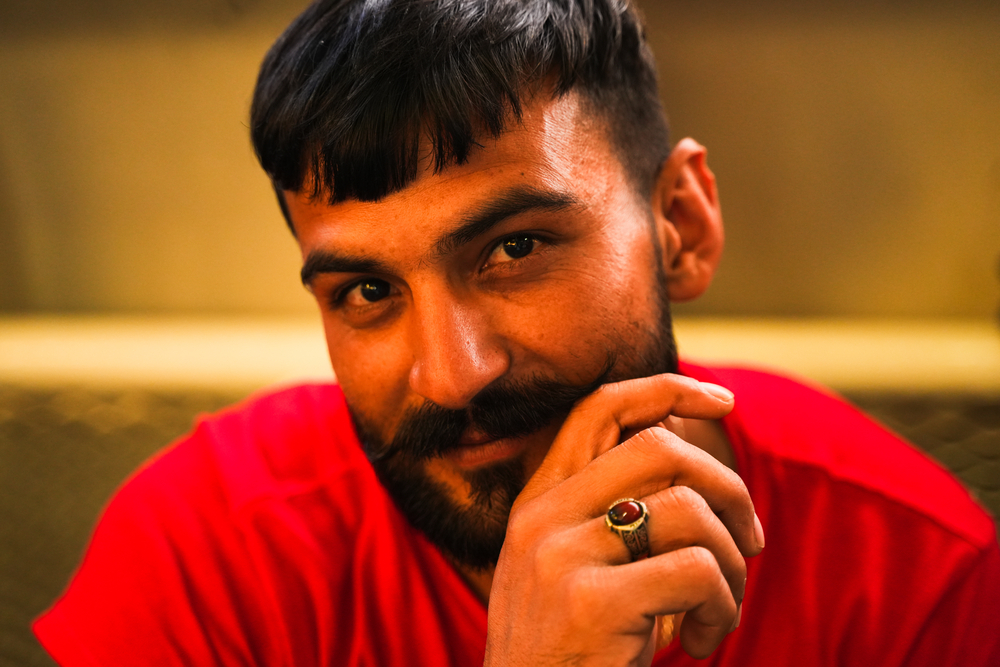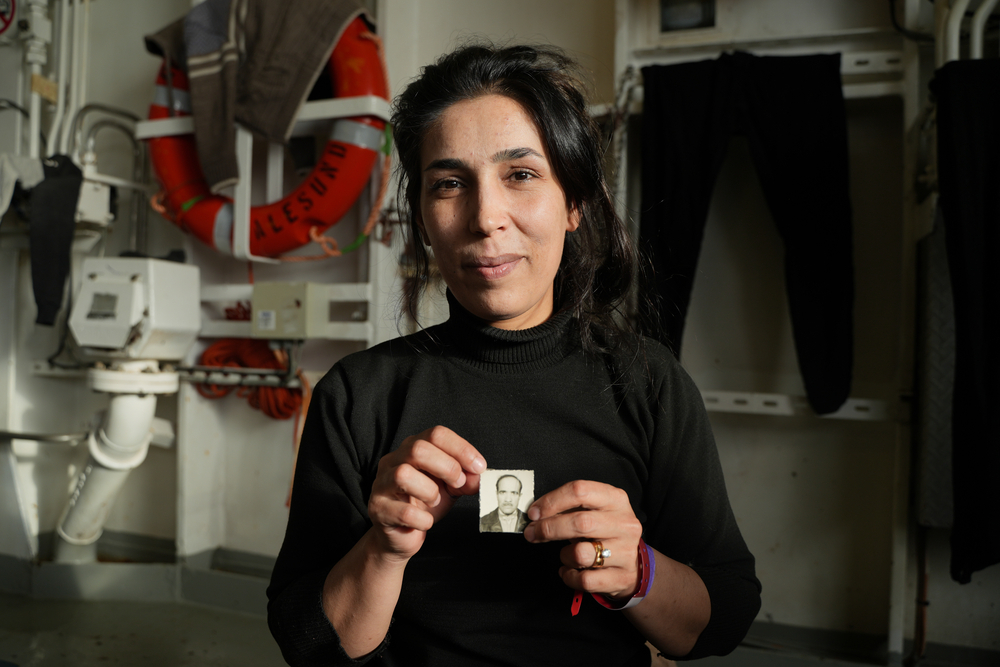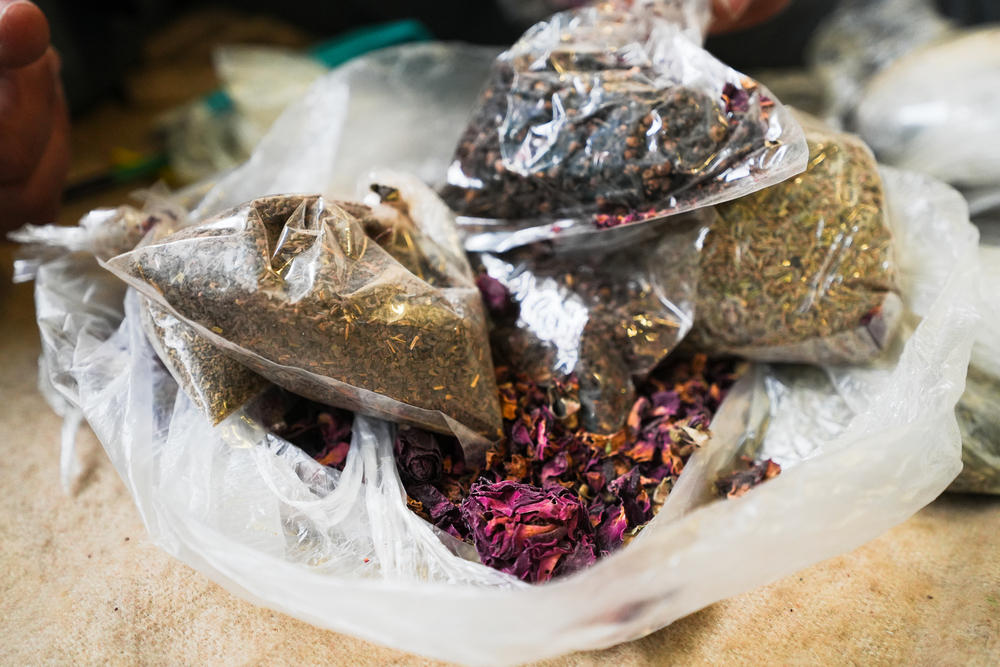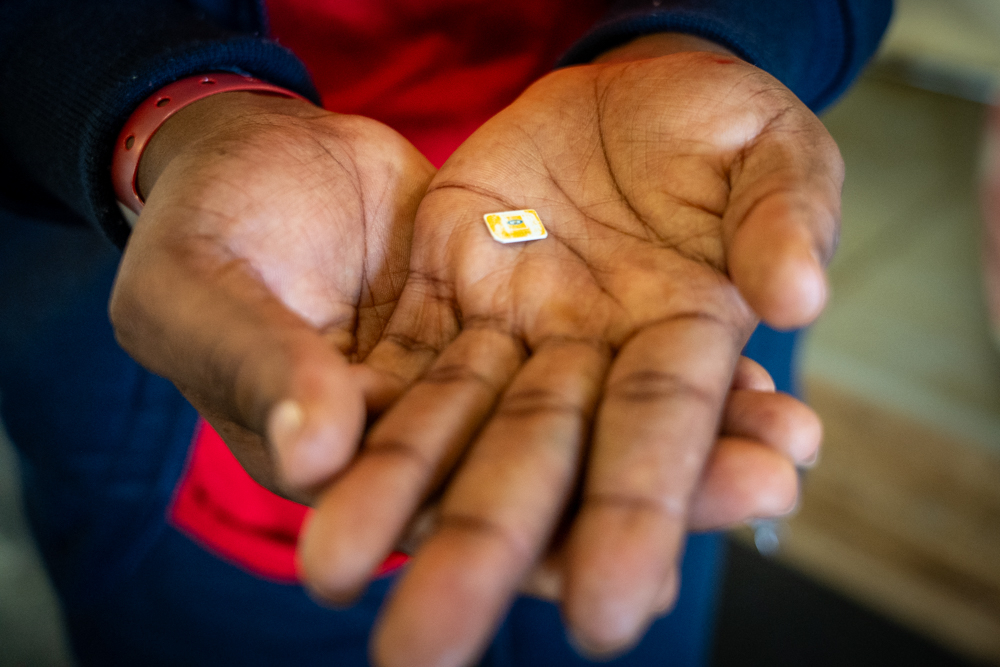Little treasures, prized possessions
Doctors Without Borders/Médecins Sans Frontières (MSF) conducts search and rescue activities on the ship the Geo Barents to support people in distress attempting a deadly crossing of the Mediterranean Sea. Every year, we see thousands of people from all over the world taking this dangerous journey. While many flee without any belongings, some people manage to carry small objects with them from their country of origin, often imbued with deep meaning and emotional significance.
During rescue activities, we asked survivors: “Do you carry any prized belongings with you? What do they mean to you?”
Hamid, 27 years old, from Pakistan
“The ring and necklace I have with me are gifts from my two brothers. Having them with me makes me feel connected to my family wherever I am. When I put them on, I feel I am talking to my brothers, as if I could see them. During my stay in Libya, I didn’t wear the ring or necklace because I knew they would be stripped away from me. But when I arrived on the Geo Barents, the first thing I did was put them on because here, it’s a trustworthy place.”
Hamid is from the Punjab region in Pakistan. He left his country in 2022, travelling first to Dubai, then Egypt and Libya. In Libya, he worked in a gas station before attempting the sea crossing. MSF rescued Hamid, along with 50 other people, from a wooden boat in distress on Nov. 17, 2023.
© Mohamad Cheblak/MSF


Dilba, 30 years old, from Syria
“I have photographs of my husband, my children, my siblings, my best friends and even one that was on my university student card. The one that’s the most precious to me is of my father, who passed away. I carry all these photographs with me to keep the memories alive. With the war in Syria, everyone went to a different place. Some of my friends went to Norway, others to the Netherlands, some stayed in Damascus and I went to Kobanî [in Syria]. I had to quit university, leave my neighbourhood, my friends, the place I grew up. The war dispersed us. Even though I haven’t seen them for years, with these photographs, their memories stay.”
Dilba was rescued by MSF from an overcrowded wooden boat in distress on Feb. 5, 2024, while trying to cross the Mediterranean Sea with about 130 other people.
© Mohamad Cheblak/MSF
Khadijah, 35 years old, born in Morocco, used to live in Libya
“The bags are precious to me, they contain various traditional herbs and plants (lavender, celery, clove, cress) prepared by my grandmother. We use them in Morocco to treat the hair and skin, and some to help digestion. I have nothing left that would connect me to my family, especially my grandmother, except this. When we were on the boat, I didn’t care about losing my documents, but I didn’t want to lose the bags.”
Khadijah used to work as a server during weddings in Libya. She lost her first husband and parents in a bombing in Libya. After this and several other violent incidents, she decided to leave the country. Khadijah, her second husband and their daughters first tried to cross the Mediterranean Sea in July 2023, but were intercepted by the Libyan Coast Guard and imprisoned in a detention centre. Khadijah’s family was rescued by MSF on Nov. 30, 2023, from a fiberglass boat in distress.
© Mohamad Cheblak/MSF


Precious, 27 years old, from Nigeria
“I was scared of losing my SIM card. It contains the phone numbers of my family and loved ones. I protected it during the toughest moments of the journey – it’s the only link I have left with the people I left behind in my country. In Libya, during the detention, I hid it in my T-shirt seams and it worked, they did not find it. I still have it with me and I am very grateful for that.”
Precious left Nigeria in January 2022 because of the increasing violence and unstable political situation. She spent 10 months in Libya, where she faced violence and detention. Precious was rescued by MSF in the middle of the night on Oct.15, 2023, from an overcrowded rubber boat. It was her fourth attempt to reach Europe by sea.
© Annalisa Ausilio/MSF